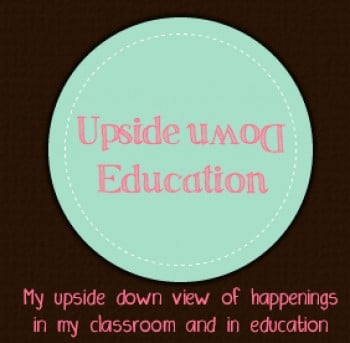Today my nephew went to orientation at his new school. Last year he hated preschool. This year he will be in kindergarten and at a new place. After he met his teacher, my brother asked him what he liked about the school. His answer was “they don’t have half to sinners!” Ummmmm. First of all, we are from the south so all kids forget the “t” and centers become sinners, so I got that part. And in the south “have to” sounds like “half to.” Anyway, after some questioning he explained it perfectly. “You know when the teacher makes you go to all these centers and they are boring and you have to write or color something boring and you ask why and the teacher says ‘because you have to.’ I hate have to centers.”
My nephew, P, hates school at age 5. And his biggest hate is not having a choice. And really not having a voice. Isn’t that the original idea behind centers, giving kids a menu of choices? Maybe not. P is a smart kid but he is an active child, not ADHD, just very athletic and learns through movement. Sitting at a table doing worksheets because he “had to” is probably pure torture. Seriously, he would just start drawing circles on the pages just to get done. He didn’t care if right. Sounds like he learned to play the worksheet game earlier than most kids. Usually isn’t perfected until 3rd grade.
You may not do centers but we all are guilty of making students do things that probably turn them off to learning. Turn them off to school. And the only explanation we give is, they have to. You have to learn math, not let me show you how the math works everyday. You have to write a paper, not let’s try blogging so you can write your ideas and find other who think like you or disagree with you. You have to memorize the 8 (or 9) planets, not let’s figure out how to live on this planet because your generation will be on Mars. No we just say they have to because a lot of times we don’t know the reason or we are just going for the easy.
My daughter, on the other hand, is in a class this year that completely PBL for social studies and she can’t wait for tomorrow to “get to” work on her project. (She’s in 4th grade, every person in Alabama dreads 4th grade history.) We should make sure our classrooms aren’t “have to” but “get to.” I understand there are requirements and standards, but if you are telling kids every day they have to and that’s the only explanation, there is a problem. I wonder how P’s views of school would change if his teacher would have explained why they were doing the activity instead. Or even better, find an activity that did meet his learning needs.
This year as you pull out old lessons from years past ask yourself the same thing P asked his teachers, why do we have to do this? If the answer is because “you have to,” it is time for a new lesson.

Amanda, how dare you — I *loved* Alabama history (and I can tell you it sets Alabamians apart from those, like my Pennsylvanian husband, who don’t study their states!) But for that difference of opinion, great post.
I could not agree more with this post! I, too, hate the idea of forcing kids to do things “just because”. I’ve always felt like if you can’t answer the kids better than that, then what is even the point of the lesson?
I think the focus on asking WHY we teach lessons is absolutely crucial. If there is a purpose it makes our lessons more meaningful, more lasting, and if nothing else, prepares us to answer the question when student’s inevitably ask, “What’s the point? When will we ever actually use this in the real world?” There are times when both students and teachers are expected to jump through hoops for one reason or another (scheduling, testing, specific standards, testing…) BUT regardless there should always be a purpose. We want lessons to be meaningful both now and in the future instead of disappearing from the students brain 3 minutes after the test. In order for this to happen, we as educators must see a reason for what we teach and convey to students WHY it matters. WE have to set up the opportunity for those connections to be made to students.
I certainly agree! As a teacher, I hate centers. They take so much time for me to prepare and they’re challenging to manage. How do I know what kids are actually doing, is it intellectually engaging, and when do I check that work? I was required to use Daily 5 a few years ago in literacy. When I made a switch, one of my kids said, “Oh thank goodness, this is so much better than all those centers.”
I want my students to be intellectually engaged. There are many ways to do this without centers that still meet kids needs. I think one area is differentiating for students inside a whole group lesson. It seems centers came about because of the need for guided groups. I think there are other ways to structure literacy that meet the needs of all of our learners-and that aren’t boring.